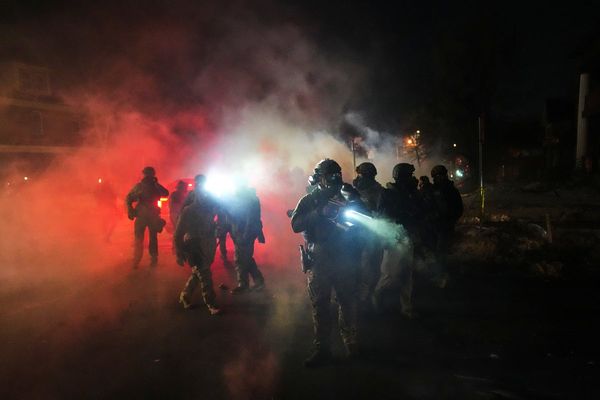If you’re dining at a restaurant in Aurora, Colorado, and notice you haven’t been given a glass of water, it may not be poor service. Instead, the eatery you’re visiting may be complying with a city-backed water-conservation initiative.
An uncharacteristically dry November has left the city’s water supply at roughly 65 percent of its total storage capacity — which can reach up to 156,000 acre-feet across its reservoirs. And, with December’s forecast not looking any better, the city council has approved a resolution encouraging local restaurants to conserve water by serving it only when customers request it, rather than bringing it automatically.
One of the reasons for the small change, which for now is voluntary, is due to the amount of water restaurants usually waste, according to Shonnie Cline, deputy director of internal and external affairs with Aurora Water
"We completely understand that this is not, in and of itself, going to save a dramatic amount of water, but...it's just a small step in a larger education program," Cline told 9 News
"This deficit that we've got up in the mountains is pretty significant. Last time I looked, I think it's about 30% less than what we would like to see this time of year,” she added.
Cline said that Aurora’s rules for serving water in restaurants become mandatory only when the city enters one of its three official drought stages, triggered when water storage drops below 100,000 acre-feet.
Despite the guidance, Scott Burnham, a restaurant owner and chef in the city, said he would leave the decision to customers unless the rule becomes mandatory.
“I obviously try to sell sparkling water or still water by the bottle, but I think in the end, a lot of people just want some tap water,” he told 9 News.
“Unless somebody comes and knocks on my door and tells me I can’t do it, I’m going to serve water to my customers,” he added.
Aurora most recently implemented drought restrictions in 2023, though officials say they are closely monitoring conditions.
The region only recently came out of a super-drought that lasted from 2020 to 2022. Super droughts in the region were historically expected to be a one-in-1,000 year event, but could happen as often as one in every six years due to human-made climate change, according to Science Advances.
Aurora is not alone in promoting water conservation at restaurants.
A decade ago, then-California Governor Jerry Brown urged eateries to serve water only on request as part of a statewide effort to reduce water use by 25 percent. Hawaii’s island of Oahu has prohibited automatic water service in restaurants since 1992.
In Colorado, Steamboat Springs implemented a similar measure during the severe 2002 drought, and the Town of Frisco enacted the practice this past August when North Ten Mile Creek’s flow dropped sharply, lifting the requirement last month as water levels improved.
Some restaurants in Denver and other cities have voluntarily adopted the by-request approach.
Over 1,000 pounds of meth seized and 15 people charged in Colorado drug investigation
MLB's new media deals with ESPN, NBC, and Netflix total $800M annually
Could a toxic metal plume threaten New Mexico residents?
Trump says ‘I don’t mind’ that Mamdani has called him a fascist
Trump predicts Mamdani will be ‘really great mayor’ for NYC in White House love-fest
Trump and Mamdani bury the hatchet in stunning press conference: Live







